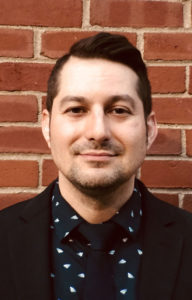
In Fall Semester 2020, the Department of Psychology welcomed Assistant Professor Noah Emery as the newest Counseling Psychology faculty member.
Emery received his B.S. in Psychology from Arizona State University in 2012 and his Ph.D. in Clinical Psychology from the University of South Dakota in 2018. He then completed his internship in 2018 and postdoctoral fellowship in 2020, both at Brown University. Emery specializes in the treatment of substance use disorders and co-occurring conditions in teens and young adults and has experience working in various treatment settings. These include dialectical behavior therapy (DBT) and alcohol and drug treatment services at Butler Hospital and the Co-occurring Disorders Program (CDP) at Bradley Hospital, both in Providence, Rhode Island.
Emery is a member of the American Psychological Association (APA), the Society of Ambulatory Assessment, the Research Society on Marijuana, the Research Society on Alcoholism, and the Association for Cognitive and Behavioral Therapies. He also serves on several committees for the Society of Addiction Psychology including the diversity, equity, and inclusion committee, the membership committee, and the executive committee. Emery has received several awards including the Research Society on Alcoholism Junior Investigator Award in 2019 and the Society of Addiction Psychology Service Recognition Award in 2016. He recently received the Loan Repayment Award for Clinical Research from the National Institute on Alcohol Abuse and Alcoholism.
Emery’s research integrates cognitive and affective science with behavioral pharmacology to identify mechanisms of behavioral change pertaining to substance use vulnerability and factors affecting treatment success during youth. The express intent of this work is to develop interventions designed to target these mechanisms and improve addiction treatment outcomes. At Colorado State University, Emery will focus on the development of interventions designed to improve positive emotion functioning in young people with substance use disorders and co-occurring conditions, such as depression.